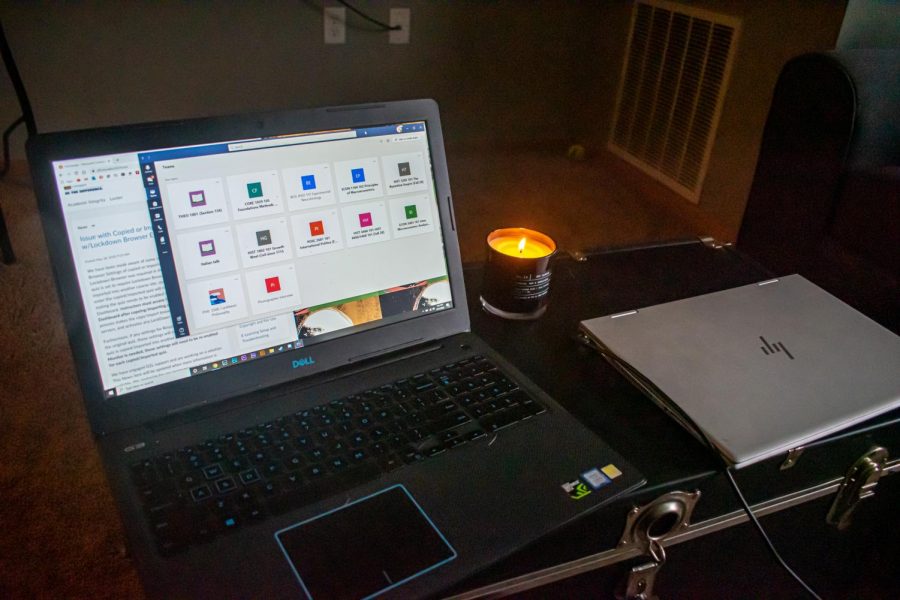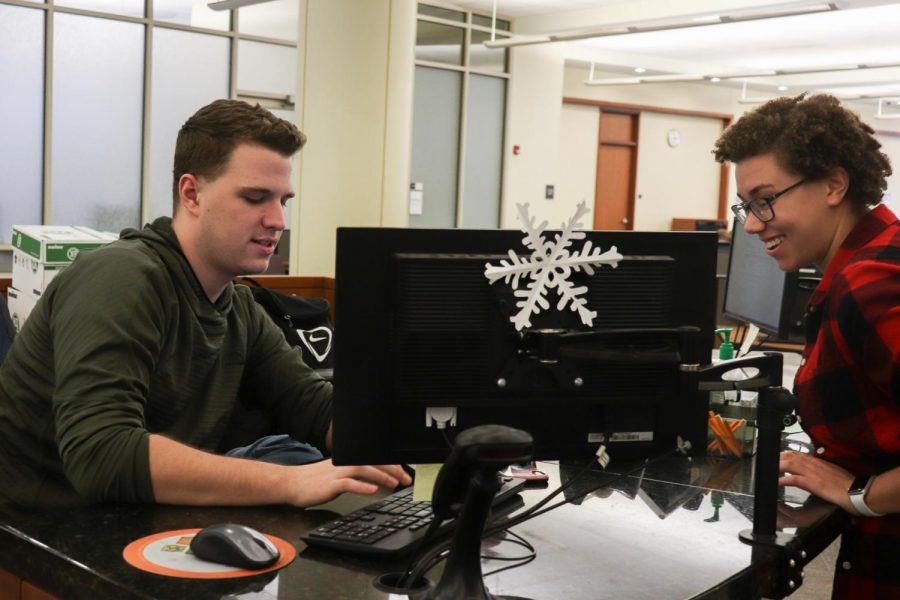Gone are the happy-go-lucky, carefree summer days. Now, summer is merely a quick break from school where you have the option to do one of two things: enjoy the lazy days or take advantage of a summer job. The opportunity to work a job or internship over the summer will give you the chance to earn money and gain experience for the future.
If you are a motivated person who wants to work this summer, you’re probably wondering when you’ll need to start looking for opportunities. This depends on the industry. “Business and engineering internships and co-ops take place in the fall and other employers are looking now,” says Laura Kestner, director of the Career Services Center. Between February and April is when most employers are looking for summer interns.
Melia Gonzalez, a freshman in the College of Communication, suggests searching for openings early. “Start as early as you can because the more experience you have, the more organizations will want you,” she says. “They want to see students that are knowledgeable, have passion, and are going to really enjoy what they’re learning.”
According to Kestner, there are three ways to find a summer job or internship. “First, you need to have a career goal, or what we call an occupational target,” she says. “You want to know what you’re looking for, what will be a corporate setting that uses your skills?” It’s important to develop a list of organizations you would like to work in and go from there.
Gonzalez, a theater major, currently has an internship at In Tandem Theater and has been looking for more theater opportunities. “I thought that continuing on from one internship to the next would be a good stepping stone,” she says. “It would show that I’m motivated to continue on my theater journey as well as continue learning.”
Next, you need to have a quality resume. “Have your resume ready,” Kestner says. “Make sure your resume lists your past experiences, whether they are from classes or previous jobs you’ve held.” You can consult the Career Services Center or visit their website for help on writing a cover letter and building a professional resume.
After you understand what you are looking for in a job, internship, or co-op and have your resume prepared, it’s time to start looking for positions and responding to openings. “Use resources such as MU Career Manager because it centers around employers who want to hire Marquette students and really focuses on career-related opportunities,” says Kestner. Certain fields may have specific career sites to look for, such as the Big Shoes Network for communication jobs.
Emmali Hanson, a sophomore in the College of Engineering, suggests responding to as many openings as possible. “Never pass up an opportunity to apply for a job and think, ‘Oh, I don’t really want to do this.’ You can always apply for it! Then if you get the job you can decide,” she says.
Networking is one of the best ways to look for job opportunities. Kestner suggests connecting with the more than 16,000 Marquette alumni on the Marquette LinkedIn Network. The Career Services Center also offers events throughout the year to give students a chance to get some experience, such as networking events and career fairs. To help yourself network, it’s important to have an elevator pitch to sell yourself to potential employers.
“When people say to you, ‘Hey, what are you doing this summer?’ you should be able to tell them what you are looking for,” Kestner says. “It’s important to be able to ask the question, ‘Do you know anyone who knows something about this topic?’ People are always surprised by who people know. Just being bold and going out there and talking about what you’re looking for is good too.”
Career Services offers coaches to help students work on preparations for jobs such as networking, or through their handouts, events, and other resources.
If you are currently undecided in your major, as many of us are, it can be a challenge to look for an internship or job. There are many companies that look for a person with a specific major. “A general internship may not be formal, but anything that helps you build skills is important,” Kestner says.
Although experience may be the point of a summer job or internship, earning money is important as well. “We don’t take a stance on paid internships,” Kestner says. “The number one thing is gaining experience, but students usually have internships that range from being unpaid to being paid about $10 to $25 dollars an hour.”
After you find an organization you are interested in working for, you now have to prepare for an interview. First, you should make sure you have a professional interview outfit, then practice for the actual interview process.
“Come to Career Services for practice interviews, which you can learn about on our website,” Kestner says. “We walk people through the process of interviews.” It’s important to go through potential interview questions and breathe before walking into the interview room. Be strong and confident in your responses.
Hanson used the Career Services Center to help prepare an interview for her summer co-op at Extreme Engineering Solutions in Madison. “I did a practice interview that helped me so much,” she says. “It was great to talk through my answers and get some real feedback.”











